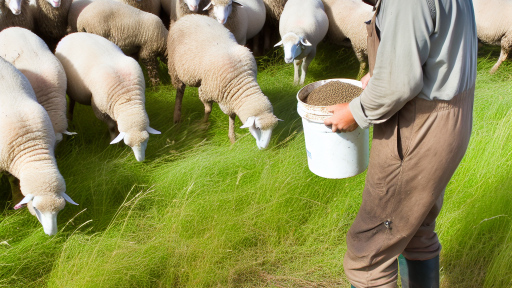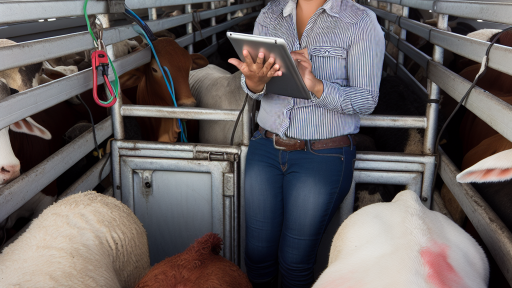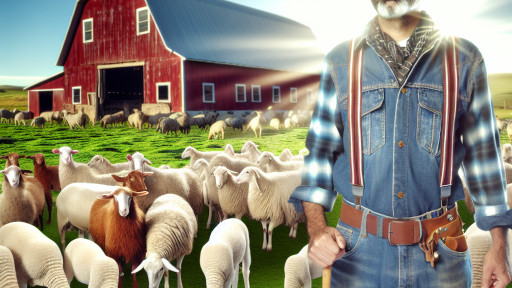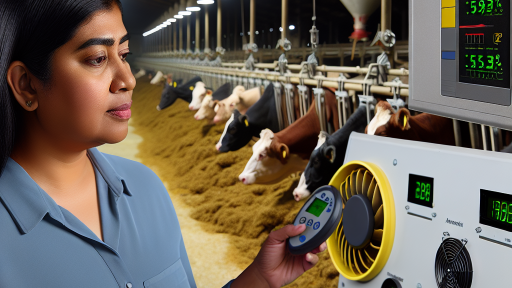Understanding Livestock Genetics and Breeding
Introduction to Genetics in Livestock
Livestock genetics plays a crucial role in modern agriculture.
It influences traits that are important for productivity.
Examples include growth rate, disease resistance, and reproductive efficiency.
Farmers need to understand these genetic factors to make informed breeding decisions.
The Importance of Breeding Programs
Effective breeding programs enhance livestock quality.
These programs use genetic selection to improve desirable traits.
Additionally, they help preserve genetic diversity within breeds.
Farmers can achieve better yields and healthier animals through well-designed breeding strategies.
Basic Principles of Genetics
Genetics consists of heredity and variation among organisms.
Traits are influenced by genes passed from parents to offspring.
Understanding dominant and recessive alleles is fundamental.
This knowledge helps breeders predict trait inheritance.
Tools for Genetic Improvement
Several tools assist in genetic improvement of livestock.
Genomic selection is one of the most effective methods available today.
It helps identify animals with superior genetic potential.
Transform Your Agribusiness
Unlock your farm's potential with expert advice tailored to your needs. Get actionable steps that drive real results.
Get StartedOther techniques include performance testing and pedigree analysis.
Challenges in Livestock Breeding
Breeders face numerous challenges in livestock production.
Inbreeding can lead to genetic disorders and reduced fertility.
Environmental factors also impact animal performance and health.
Consequently, breeders must consider both genetics and management practices.
Future Trends in Livestock Genetics
Technological advancements are shaping the future of livestock genetics.
Gene editing technologies, such as CRISPR, hold great promise.
They enable precise modifications to enhance desirable traits.
Moreover, data analytics will allow for more targeted breeding strategies.
The Basics of Genetic Inheritance in Livestock
Introduction to Genetic Concepts
Genetics plays a critical role in livestock breeding.
It influences traits such as size, milk production, and disease resistance.
Understanding these concepts can enhance breeding outcomes.
Understanding Genes and Alleles
Genes are the basic units of heredity.
They are segments of DNA that code for specific traits.
Alleles are different versions of a gene.
These variations can alter how a trait is expressed.
The Role of Dominant and Recessive Traits
Traits can be dominant or recessive.
Dominant traits require only one allele to be expressed.
Recessive traits require two copies to show in the phenotype.
This relationship affects genetic predictions in breeding.
Mendelian Inheritance Principles
Mendel’s laws of inheritance describe how traits are passed down.
The law of segregation states that allele pairs separate during gamete formation.
The law of independent assortment states traits are inherited independently of one another.
These principles guide effective breeding strategies.
Showcase Your Farming Business
Publish your professional farming services profile on our blog for a one-time fee of $200 and reach a dedicated audience of farmers and agribusiness owners.
Publish Your ProfileInfluence of Genetic Variation
Genetic variation is essential for a healthy livestock population.
It allows for adaptability to changing environments.
Breeders should aim to maintain genetic diversity.
Applications of Genetic Testing
Genetic testing offers valuable insights for breeders.
It identifies desirable traits and genetic defects.
Use of this technology results in informed breeding decisions.
This practice promotes the sustainability of livestock breeds.
Impact on Breeding Programs
Understanding genetics enhances the effectiveness of breeding programs.
It helps in achieving specific production goals.
Ultimately, it contributes to the overall success of livestock operations.
The Importance of Genetic Diversity in Breeding Programs
Understanding Genetic Diversity
Genetic diversity refers to the variety of genes within a species.
This diversity plays a crucial role in animal breeding.
It enhances health and resilience in livestock populations.
Moreover, it can lead to improved productivity.
Benefits of Maintaining Genetic Diversity
Maintaining genetic diversity helps avoid inbreeding depression.
Inbreeding can result in reduced fertility and increased vulnerability.
Conversely, diverse genetic backgrounds lead to healthier herds.
Additionally, diverse genetics contribute to better adaptation.
Livestock with varied genes can better withstand diseases and environmental changes.
Strategies to Enhance Genetic Diversity
Breeders can employ several strategies to maintain diversity.
One effective method is crossbreeding different breeds.
This practice can introduce desirable traits into a population.
Another strategy involves using artificial insemination.
Artificial insemination allows access to a wider gene pool.
The Role of Technology in Breeding
New technologies enhance genetic diversity management.
Genomic selection allows breeders to identify superior traits.
Furthermore, tools like genetic mapping offer insights into breeding choices.
These technological advancements streamline the breeding process.
As a result, livestock can develop better characteristics more efficiently.
Challenges in Maintaining Genetic Diversity
Despite its importance, maintaining genetic diversity can be challenging.
One obstacle is the preference for traits that ensure short-term gains.
Additionally, limited breeding programs may restrict gene flow.
Moreover, economic pressures can discourage genetic diversity efforts.
Yet, addressing these challenges is vital for sustainable breeding.
Discover More: Sheep and Goat Breeds for Meat Production
Identifying Key Traits for Breeding Success
Understanding Key Traits
Breeding success hinges on identifying core traits in livestock.
These traits influence overall herd performance and profitability.
Additionally, understanding genetics provides an edge in breeding decisions.
Growth Rate
Growth rate is a critical trait for many livestock producers.
Fast-growing animals yield more meat in a shorter timeframe.
Showcase Your Farming Business
Publish your professional farming services profile on our blog for a one-time fee of $200 and reach a dedicated audience of farmers and agribusiness owners.
Publish Your ProfileMoreover, selecting for growth rate can enhance feed efficiency.
Reproductive Performance
Reproductive performance significantly affects herd productivity.
High fertility rates lead to more calves or lambs produced annually.
Consequently, selecting for reproductive traits improves overall herd numbers.
Health and Disease Resistance
Health traits play a crucial role in long-term farming success.
Breeding animals with better disease resistance reduces veterinary costs.
Furthermore, healthier animals contribute to stable production rates.
Meat Quality
Meat quality affects consumer preference and market prices.
Key factors include tenderness, flavor, and marbling.
Thus, selecting for these traits can enhance meat products.
Adaptability to Environment
Adaptability ensures livestock thrive in various climates and conditions.
Such resilience minimizes stress and enhances productivity.
Ultimately, adaptable breeds can lead to more successful farming practices.
Genetic Diversity
Genetic diversity within a herd supports long-term viability.
It helps reduce the risk of genetic diseases and enhances resilience.
Furthermore, diverse genetics can result in varied traits beneficial for specific environments.
Utilizing Technology in Breeding
Advancements in genetics and biotechnology streamline breeding processes.
Technologies like DNA testing provide valuable insights into trait selection.
Consequently, producers can make informed decisions to enhance livestock quality.
See Related Content: Best Practices for Exotic Animal Housing
Modern Tools and Technologies in Livestock Genetics
Genomic Selection
Genomic selection revolutionizes livestock breeding programs.
This technology accelerates genetic improvement in various traits.
Breeders can now predict the genetic potential of animals more accurately.
The use of high-density SNP chips enhances these predictions.
Additionally, genomic information helps in making informed breeding decisions.
Artificial Insemination Techniques
Artificial insemination (AI) is a game-changer for livestock breeding.
This technique allows for the introduction of desirable genetics across herds.
AI increases the availability of superior sires for breeding programs.
Moreover, it reduces the risk of disease transmission among animals.
Consequently, farmers can manage breeding more efficiently.
Reproductive Technologies
Advancements in reproductive technologies enhance breeding success rates.
Techniques such as in vitro fertilization (IVF) improve reproductive efficiency.
IVF allows for the creation of embryos from selected genetic stock.
Furthermore, embryo transfer can propagate valuable genetics rapidly.
This approach optimizes genetic spread while maximizing economic returns.
Data Management and Software Solutions
Data management tools play a vital role in livestock genetics.
These tools help track breeding histories and animal performance data.
Software solutions assist breeders in analyzing large datasets effectively.
Additionally, they enhance decision-making processes in breeding programs.
With accurate data, farmers can identify optimal breeding pairs swiftly.
Showcase Your Farming Business
Publish your professional farming services profile on our blog for a one-time fee of $200 and reach a dedicated audience of farmers and agribusiness owners.
Publish Your ProfileBiotechnology and Genetic Engineering
Biotechnology introduces innovative methods for improving livestock genetics.
Genetic engineering techniques enable targeted modifications in livestock DNA.
This technology may enhance disease resistance and growth rates.
However, its application must adhere to regulatory standards.
Ultimately, biotechnology holds the potential for significant advancements in the field.
Uncover the Details: Enhancing Beef Cattle Reproduction Success Rates
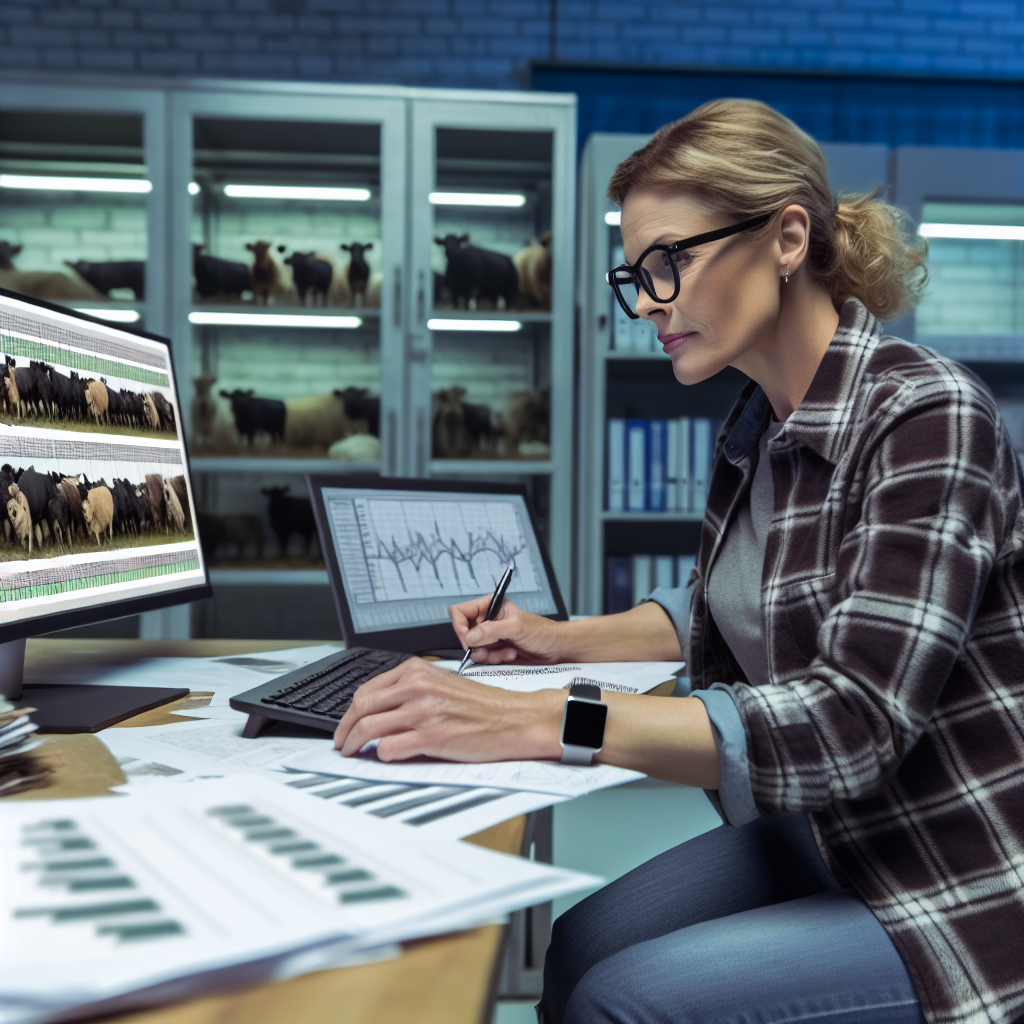
Challenges and Ethical Considerations in Genetic Breeding
Understanding Genetic Manipulation
Genetic manipulation in livestock breeding raises significant ethical questions.
Farmers often choose traits for productivity over welfare.
This choice can create animals that suffer from health issues.
Additionally, genetic diversity may decline due to selective breeding.
Consequently, animals may become more vulnerable to diseases.
Environmental Impact
The impact on the environment is a growing concern.
Genetic breeding can lead to decreased biodiversity.
As a result, ecosystems can become imbalanced.
This imbalance may disrupt natural pest control and pollination.
Moreover, the reliance on genetically similar breeds can increase risk.
Animal Welfare Concerns
Animal welfare is a critical area in livestock genetics.
Enhanced traits sometimes compromise the species’ natural behaviors.
For instance, increasing size can lead to delivery complications in cows.
Furthermore, some genetically modified animals experience pain or discomfort.
This raises serious questions about humane treatment standards.
Socioeconomic Considerations
The socioeconomic implications of genetic breeding must not be overlooked.
Small farmers may struggle to compete with large agribusinesses.
Consequently, corporate control can dominate the market, pushing out smaller operations.
This economic disparity can widen the gap between rich and poor farmers.
Overall, the focus on profit can overshadow ethical breeding practices.
Future of Genetic Breeding
Looking ahead, the industry needs to address these challenges proactively.
Regulations should ensure ethical practices in genetic breeding.
Public awareness campaigns can inform consumers about breeding ethics.
Lastly, collaborative efforts can encourage sustainable and humane practices.
Find Out More: Implementing Rotational Grazing for Beef Cattle
Case Studies of Successful Livestock Breeding Programs
The Holstein Breeding Initiative
The Holstein Breeding Initiative transformed dairy farming practices.
This program utilized advanced genomic selection methods.
Breeders aimed to enhance milk production and improve animal health.
As a result, farms saw a 15% increase in milk yield.
Additionally, better health outcomes reduced veterinary costs significantly.
The Angus Cattle Program
The Angus Cattle Program focused on genetic trait improvement.
It prioritized traits like marbling, growth rate, and feed efficiency.
Breeders implemented a robust data collection strategy.
This allowed for an informed selection process for new breeding stock.
Showcase Your Farming Business
Publish your professional farming services profile on our blog for a one-time fee of $200 and reach a dedicated audience of farmers and agribusiness owners.
Publish Your ProfileThe program increased overall profitability for participating ranchers.
The Yorkshire Pig Breeding Project
The Yorkshire Pig Breeding Project showcased innovative breeding techniques.
Breeders emphasized disease resistance in their stock selection.
This forward-thinking strategy reduced mortality rates in piglets.
The project also improved the overall growth rate of the pigs.
Consequently, producers enjoyed higher returns on their investments.
The Sheep Genetic Improvement Program
The Sheep Genetic Improvement Program highlighted the importance of diversity.
This program integrated various breeds to enhance wool quality.
Additionally, it focused on improving growth rates for meat production.
By leveraging cross-breeding strategies, farms experienced significant success.
In turn, this enhanced the economic sustainability of sheep farming.
Future Trends in Livestock Genetics and Breeding Research
Advancements in Genetic Technologies
Genetic technologies are rapidly evolving in livestock breeding.
Innovations in CRISPR and gene editing provide new opportunities.
These technologies enhance traits like disease resistance and growth rate.
Farmers now face fewer challenges in improving livestock health.
Additionally, bioinformatics plays a crucial role in data analysis.
Integration of Genomics and Traditional Breeding
The combination of genomics and traditional methods is gaining acceptance.
Utilizing both approaches maximizes genetic gains.
This integration enhances genetic diversity in breeding programs.
Moreover, it allows for tailored breeding strategies based on individual animals.
Focus on Sustainable Practices
Sustainability is increasingly important in livestock breeding research.
Breeders aim to reduce environmental impacts from livestock production.
They focus on improving feed efficiency and reducing emissions.
Furthermore, sustainable practices enhance animal welfare and productivity.
Global Collaboration and Knowledge Sharing
Collaboration among researchers worldwide improves genetic research.
Sharing knowledge accelerates the development of best practices.
Additionally, international partnerships facilitate the exchange of genetic materials.
This cooperation enhances breeding programs across various countries.
Regulatory Changes and Consumer Preferences
Regulations surrounding genetic modifications are evolving rapidly.
Governments are adapting to the latest scientific advancements.
Consumer preferences are also shifting towards ethically bred livestock.
Transparency in breeding practices is becoming essential for market acceptance.

